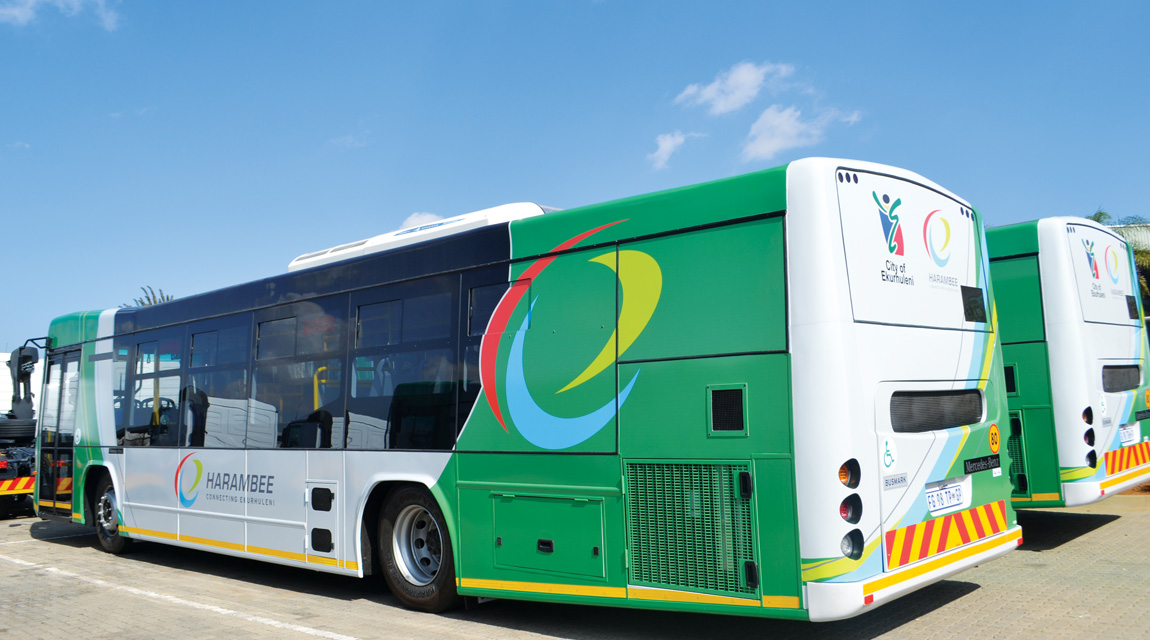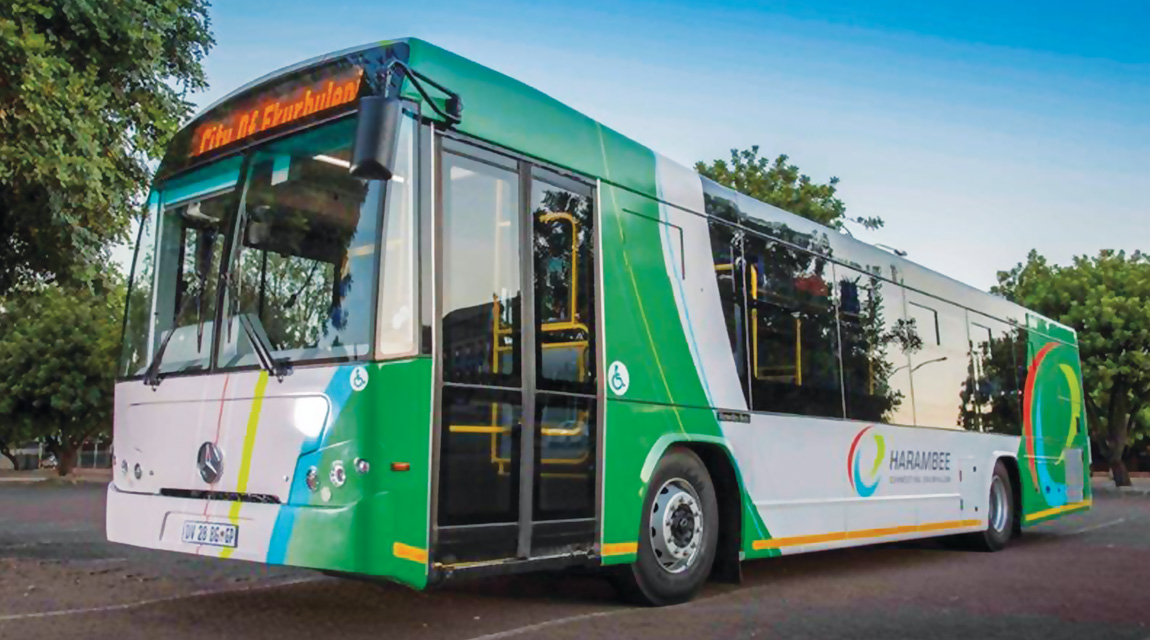Harambee BRT service endures amid protests and delays

The City of Ekurhuleni launched the Harambee bus rapid transit (BRT) service in October 2017. It was, however, suspended abruptly. How does the municipality plan to ensure reliable public transport for the community?
The Harambee express service was launched in 2017, following the successful technical testing of Phase 1A, which included determining the viability of the bus routes, as well as vehicle movement and the possibility of congestion within a mixed-traffic scenario.
The Harambee BRT service faced a number of hurdles before its launch. These began with the missing of the initial June 2016 deadline for the roll-out of Phase 1A. The bus service was then suspended, due to an interpretation of some clauses in the service agreement.
“This issue was resolved per the provisions of the same agreement as entered into between the City of Ekurhuleni and the interim service provider, the Kempton-Tembisa-Vosloorus-Rieger Park (KTVR) Bus Service,” says Themba Gadebe, communications and brand management spokesperson for the City of Ekurhuleni.
In November 2017, an unrelated protest affected the service when minibus-taxi drivers blocked the N1 highway. The drivers were demanding subsidies from the government and calling for the scrapping of the Administrative Adjudication of Road Traffic Offences (Aarto) bill.
In March 2018, the Ekurhuleni Taxi Industry (ETI) staged a protest against the Harambee bus service and presented a list of demands relating to the roll-out of the service.
Operating with the taxi industry
Gadebe says that the City of Ekurhuleni has signed a memorandum of understanding with the ETI, which established working groups to facilitate planning and engagement on the implementation of the project. The Harambee bus service will now run together with the ETI. In addition, two more stops have been added on Isando Road and Diesel Street.
“An agreement was signed with regard to Section 67, giving impetus to the support of the KTVR bus service established by the city. Pending the outcome of the negotiations, the working groups will later be transformed into a vehicle operating committee. All project engagements are being conducted within the premise of these agreements,” Gadebe notes.
More than 70 jobs have been created through the KTVR bus service, and about 919 jobs have been created through construction of the integrated rapid public transport network (IRPTN) infrastructure since the inception of the project.

The current service
The bus service carries 260 passengers per day on a limited service running from Rabasotho Hall in Tembisa to Isando and back. The 38-km Phase 1A route is one of the five phases that are expected to be rolled out in the long term.
“The service is currently charging a flat tariff of R13 for a single trip. This will, however, be revised when a distance-based fee is adopted. The current operating system runs as an express service from Station 7 to Station 14, and then heads to Isando and back.
“The introduction of the service has given commuters an alternative, safe, efficient and reliable mode of transport with an added benefit of reduced travel times,” notes Gadebe.
Currently, the Harambee buses run every 20 minutes during peak and every 60 minutes during off-peak times.
The near future
Gadebe says plans are underway to expand the service to cover more regions of Ekurhuleni. Discussions with Airports Company South Africa (ACSA) are at an advanced stage, as the municipality plans to expand the services to the
O.R. Tambo International Airport.
Emperors Palace is another area that has been identified to run the Harambee BRT Phase 1 service.
“The community can expect the extension of the bus service to Kempton Park CBD and the O.R. Tambo International Airport,” Gadebe adds.
There are other exciting innovations being worked on by the City of Ekurhuleni, such as the implementation of the Europay, MasterCard and Visa (EMV) card system – a global standard for credit and debit payment based on chip-card technology – to further accelerate technological advancements in the service.
Gadebe says: “The production of EMV cards is underway and should be in place when the service is expanded. Commuters will be able to load as many trips as they wish from selected retail outlets. The buses are fitted with passenger counters and validators that will monitor bus efficiencies through their connection to the system control centre,” Gadebe concludes.
Published by
Focus on Transport
focusmagsa



